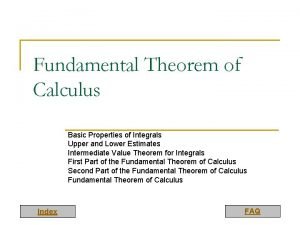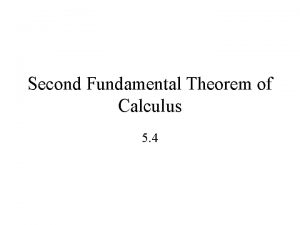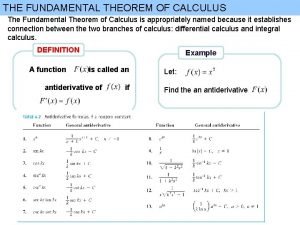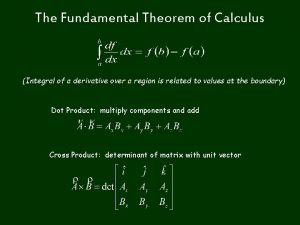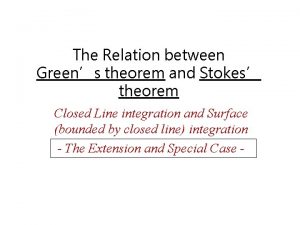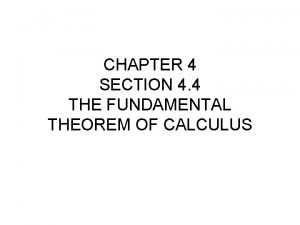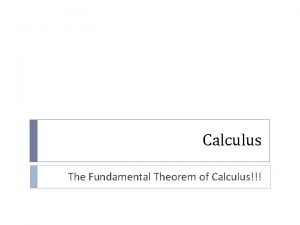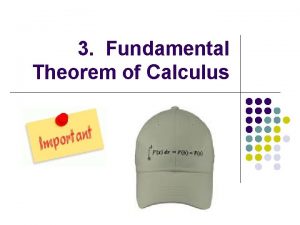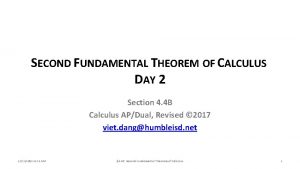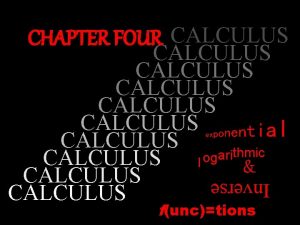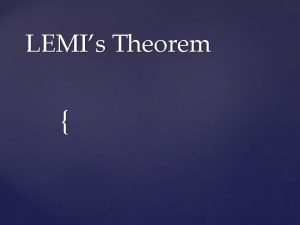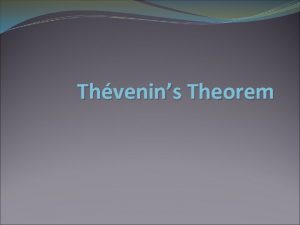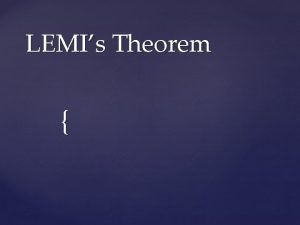Second Fundamental Theorem of Calculus 5 4 If












- Slides: 12

Second Fundamental Theorem of Calculus 5. 4

If you were being sent to a desert island could take only one equation with you, might well be your choice.

The Fundamental Theorem of Calculus, Part 2 If f is continuous on , then the function has a derivative at every point in , and

Second Fundamental Theorem: 1. Derivative of an integral.

First Fundamental Theorem: 1. Derivative of an integral. 2. Derivative matches upper limit of integration.

First Fundamental Theorem: 1. Derivative of an integral. 2. Derivative matches upper limit of integration. 3. Lower limit of integration is a constant.

First Fundamental Theorem: New variable. 1. Derivative of an integral. 2. Derivative matches upper limit of integration. 3. Lower limit of integration is a constant.

The long way: Second Fundamental Theorem: 1. Derivative of an integral. 2. Derivative matches upper limit of integration. 3. Lower limit of integration is a constant.

1. Derivative of an integral. 2. Derivative matches upper limit of integration. 3. Lower limit of integration is a constant.

The upper limit of integration does not match the derivative, but we could use the chain rule.

The lower limit of integration is not a constant, but the upper limit is. We can change the sign of the integral and reverse the limits.

The Fundamental Theorem of Calculus, Part 1 If f is continuous at every point of is any antiderivative of f on , and if F , then (Also called the Integral Evaluation Theorem) We already know this! To evaluate an integral, take the anti-derivatives and subtract. p
 First fundamental theorem of calculus
First fundamental theorem of calculus The fundamental theorem of calculus
The fundamental theorem of calculus State fundamental theorem of arithmetic.
State fundamental theorem of arithmetic. Fundamental theorem of calculus
Fundamental theorem of calculus Fundamental theorem of vector calculus
Fundamental theorem of vector calculus Green theorem and stokes theorem
Green theorem and stokes theorem Theorem 4 calculus
Theorem 4 calculus Finger print types
Finger print types The first principle of fingerprints is that fingerprints
The first principle of fingerprints is that fingerprints Fingerprint island ridge
Fingerprint island ridge 186 282 miles per second into meters per second
186 282 miles per second into meters per second Fundamental theorem of statistics
Fundamental theorem of statistics Fundamental theorem of asset pricing proof
Fundamental theorem of asset pricing proof
